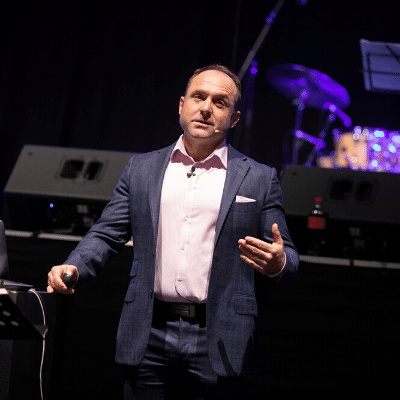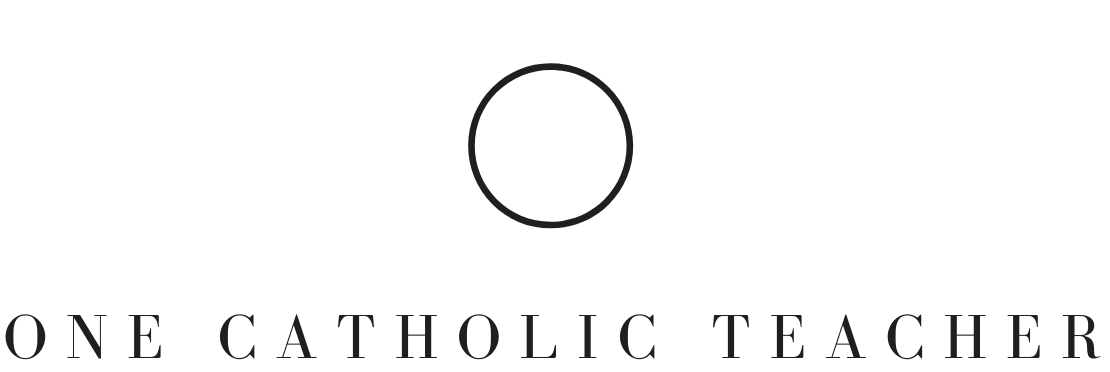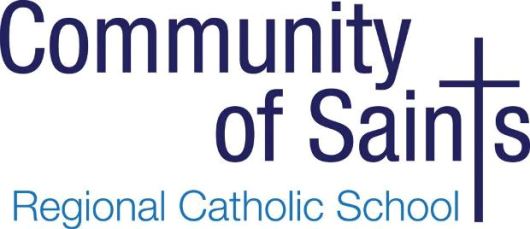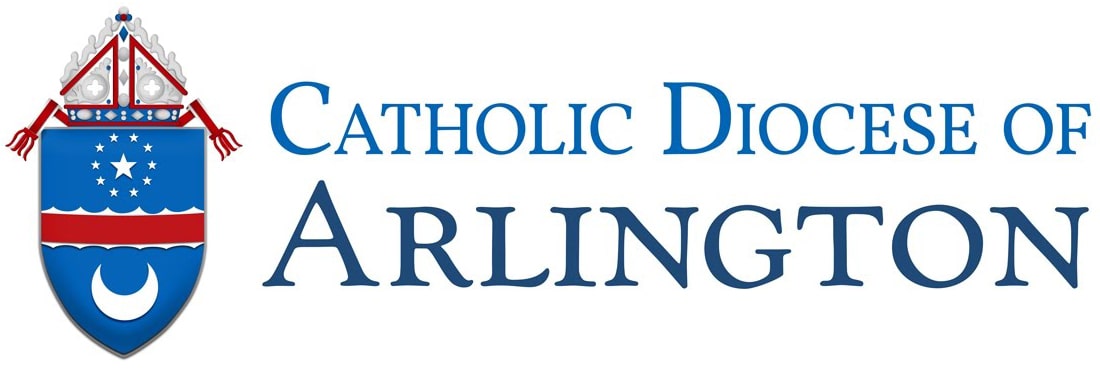Catholic Teachers and Ignatian Spirituality
What it is and why it matters.
In today’s episode we cover three main topics. First we share a great quote from Caryll Houselander. Then I want to explore with you how a basic principle of Cognitive Behaviour Therapy can make your life as a Catholic teacher more functional and finally I discuss how the foundations of Ignatian Spirituality can help all of us to flourish as Catholic teachers. There is something for everyone in this episode.
Author

Jonathan Doyle
Jonathan Doyle is an international speaker, author, businessman and executive coach who has spoken around the world to more than 400,000 people on topics related to personal development, peak performance, leadership, Catholic school evangelisation, relationships and much more.
His recent keynote addresses include the NCEA National Convention in St. Louis Missouri to 10,000 delegates and he is a frequent keynote speaker in the US, Asia and Europe.
He is also the founder of an influential education and media business that delivers training content to hundreds of organisations and thousands of individuals around the world on a weekly basis.
Jonathan holds an undergraduate degree in education from the University of Canberra, a Masters Degree in Leadership and Management from the University of Newcastle and has also undertaken post-graduate study in philosophical anthropology.
He is the author of numerous books on relationships and peak performance and each day shares these same ideas with a large global audience via The Daily Podcast with Jonathan Doyle.
Finishing Strong is a loud and clear call for every young person to make the very best of their final years of school. Based on hundreds of seminars around the world to a huge number of students Jonathan Doyle offers powerful, practical advice that can make a major difference.
Each chapter offers inspiring stories, clear principles and actionable steps for identifying and moving forward in study, life, friendships and each key area of life.
Jonathan also includes journal questions and guided reflections at the end of each chapter to maximise learning and ensure the ideas and principles can be made real, personal and achievable.
If you want to help your child or students make the very best of their final years of high school then it;s time to help them finish strong!
Transcript:
Catholic Teachers and Ignatian Spirituality
Jonathan Doyle:
Well, hey everybody, Jonathan Doyle with you once again. Welcome friends. Welcome, welcome, welcome to the Catholic Teacher daily podcast. Thank you for some lovely feedback yesterday from people around the world, people wondering where I’d been. One person said, “Sometimes it’s good to have a break.” And it has been. It’s been really good to have just some time to read. I’m a massive reader. I don’t know how many of you listening suffer from the same beautiful affliction. But oh my gosh, since I discovered Amazon Prime, it’s the worst thing ever. It’s like, I just keep coming across so many wonderful books to read. I don’t remember whether it was Epictetus, but there’s a beautiful quote where… It might’ve been Epictetus said, “When I have a little money, I buy books. And if there’s anything leftover, I buy food.”
Jonathan Doyle:
So I’ve been feeding myself and learning a great deal. And it’s great to be back with you in this challenging time for Catholic education around the world and for all sorts of different parts of our world. But God is good. We are never abandoned. Isn’t that beautiful? Matthew 28, where Jesus promises to be with us to the end of the age. He’s the same yesterday. He is the same today and he will be the same forever. Isn’t that good news? Isn’t it good news to be reminded of that? We turn on our media or you look at social media and we’re convinced that the world is unraveling and all these things are happening, but let’s remember that we are an incredibly resilient species, friends. And not only that, but we have a God that promised never to leave us.
Jonathan Doyle:
So in this new format, we’re doing three things in each message, the quote. So if you’re not getting the daily quote, just email me jonathan@onecatholicteacher.com. That’s O-N-E Catholic teacher, one Catholic teacher.com. Jonathan@onecatholicteacher.com. And we’ll get you back on the list. So if you’re not on that list, basically I just put out a beautiful spiritual quote around the same time each day. I know we all get a lot of email, but this is a very quick little thing just to inspire you as you go through your day. And it also has the link through to the podcast. So today’s quote’s from Caryll Houselander, who I just came across by accident about a year or two ago. A beautiful lay Catholic woman, a mystic poet, writer.
Jonathan Doyle:
Listen to this beautiful quote. She says, “Christ asks for a home in your soul where he can be at rest with you, where he can talk easily to you, where you and he alone together can laugh and be silent and be delighted with one another.” One more time. “Christ asks for a home in your soul where he can be at rest with you, where he can talk easily to you, where you and he alone together can laugh and be silent and be delighted with one another.”
Jonathan Doyle:

Ignatian spirituality can provide a powerful road map for the Christian life.
I just think that’s a really lovely quote. In my own personal spiritual journey and the journey of prayer, it’s been a real challenge for me to really encounter God that way, that level of intimacy. I think these things are conditioned by a lot of factors about how we grow up and our experiences of nurture and love and intimacy.
Jonathan Doyle:
I meet people that have this incredibly intimate… You look at even saints, like Saint Therese, the child Jesus, Therese of Lisieux, who’s famous for that level of intimacy that we’re all called to. But I just want to say that to pursue this, to begin to experience this, because I know some of you listening would be like, “Yeah, okay, this doesn’t resonate.” But I keep saying podcast after podcast after podcast, that we need to create this space and time for intimacy and relationship with Jesus. It doesn’t… God’s God, it can magically fall from the sky, but this relationship of prayer for the Catholic teacher is one that we have to build.
Jonathan Doyle:
And I just think at the moment, this moment in history, there’s a season where I think there’s going to be a smaller number of us that really step up and seek Christ and seek prayer and seek the Holy Spirit and seek the Father through prayer. So let’s remind ourselves of just how important this is. All right. So that’s the first part. We do our daily quote.
Jonathan Doyle:
Second part is I try and offer something constructive from I guess these broad areas of management motivation that I’ve been a part of I guess professionally for many, many years. So what I want to share with you today is very simple. I’ve been fascinated by my interest in cognitive behavior therapy. Now it’s something I’ve come to pretty late. I’ve over many years, had a great interest in counseling and different theories of human development, but CBT, believe it or not, is one that I didn’t get a lot of grounding in. So I’ve been reading pretty heavily. And I just want to share with you some very simple insights. Some of you will be very familiar with it, some of you less so. But one of the things that CBT does, and if you’re listening, going “Hang on, we just did Caryll Houselander, how did we get to CBT?”

Taking time for Ignatian discernment
Because we’re going to do the quote, we’re going to do something practically useful, and then we’re going to finish with something more inspirational and spiritual to finish. So this second part, let’s look out for some practical stuff. One of the great things that CBT offers is it helps us to understand our errors in thinking. So most of us go through our day, assuming that how we’re thinking as Catholic teachers is, or how we’re thinking as individuals, is just normal and that we’re seeing reality as it really is and that everybody else is crazy. That’s how many of us go through life. But basically what CBT points out is that we’re very capable of making constant and simple mistakes in how we think. And there’s about eight to 10 of them. I’m sure there could be more depending on how you group them, but the one I want to offer you today is what they call magical thinking.
Jonathan Doyle:
It’s the belief that we have that we know what other people are thinking. And you’re going, “How is this relevant?” Well, think about it. Think about one of most crucial things about our lives as Catholic teachers is our relationships with other staff and all the issues that can play out in friendships and relationships. And I know you might’ve heard of this thing called politics that can play out in schools and in human relationships. I know you’ve only heard about it though you’ve never seen it. But one of the things about these close human relationships that we have in Catholic schools is we can often have moments of uncertainty or conflict or difficulty. And one of things that can happen is that we get up in this magical thinking that CBT reminds us of.
Jonathan Doyle:
And magical thinking is this simple idea that we magically know what other people are thinking about us. You ever done that? You ever been like, you walk down the hall or the corridor in your school and a teacher who’s normally very friendly, almost glares at you and just grunts. And as you say hello, and walks off. So what do you magically do? Magically, we go, “Oh, they don’t like me anymore. I’ve done something. I’ve offended them. I’ve done something terrible.” And we have this magical thinking process.
Jonathan Doyle:
And the fact is that we can never exactly know what someone’s thinking unless we actually ask them and they tell us. So of course, what CBT will teach us is that this person could have any number of other challenges or things that have… Their pet could have died that morning, or they could have been in a minor car accident on the way to school. There’s any number of possibilities. They could have a sick relative who’s had a relapse. So one of the ways to be mentally healthy and to stay resilient, and remember that Catholic teaching and education is a demanding psychologically, emotionally, spiritually demanding task, is to get ourselves out of this magical thinking.

Catholic teachers and Ignatian spirituality
Jonathan Doyle:
And one of the simplest ways to do that is just to ask ourselves, “What else could this mean?” What else could this mean? So when someone glares at you, the real question is “I wonder what’s going on for them.” So you always look for what we call an empowering meaning. You always look for an answer that is going to help you to be happier. And I know some of you are going, “So you’re just saying we construct our own meaning based on whatever.” And I go, no, you construct a meaning that is most beneficial, that’s going to help you to love the most, that’s going to help you to be the most joyful. And then in the absence of actual data from the person, you don’t know. So maybe it means you’ve got to ask, maybe it means you got to have the courage to go, “Hey, you seem a bit different this morning. Are you okay?” And maybe that opens up another conversation.
Jonathan Doyle:
So let’s finish on that. But basically this CBT insight is to avoid magical thinking. The principal doesn’t like me, the principal hasn’t talked to me for a week, maybe the principal’s really busy. We can’t know these things. So it’s just crucial that we construct meanings that are helpful.
Catholic Teachers and Ignatian Spirituality – The Basics
All right. Last thing today is to bring us back to just some spiritual encouragement. I have been after many years, investing myself in the concepts of Ignation discernment. I had a friend recommend it to me recently, and what’s been fascinating about it is how something that’s over 500 years old that has been utterly massive in the history of the church seems to be very quiet at the moment. I find that very interesting. I know that some of you are familiar with Ignatian discernment, especially if you’re in an Ignatian school listening to this, but it’s quite quiet I feel in the life of the church. And I wonder why that is when Catholic teachers and ignatian spirituality is such a crucial topic.

Time in prayer and discernment is never wasted.
I think it’s I personally, because I think that sometimes the enemy really is keen to hide things from the faithful that could be really useful. The discernment of spirits, the discernment of consolation and desolation. But I want to… We’ll go into it more deeply in coming podcasts, but I want to leave you with this simple principle from Saint Ignatius who begins to… He gives an opening statement in his spiritual exercises. And he says that the purpose of the exercises, the purpose of this whole spiritual framework that he built was for what purpose? He said, it’s to free ourselves of what he calls inordinate attachments. I’ll get to that in a second. Why should we be free of inordinate attachments? Because he says that if we get free of inordinate attachments, then we become free to discern the will of God, to love God and to move towards the salvation of our souls.
Jonathan Doyle:
So a couple of points on that. Wouldn’t it be great to know the will of God? I mean how good would that be to live regularly, to live daily in this sense of knowing what God has for us and what God calls us towards. And that’s the beautiful riches of our Catholic faith. The person transcribing that’s going to have trouble with that. So a couple of points to finish. Inordinate desires. What are those? Inordinate means unhelpful. It means something that is beyond what is balanced, reasonable or good. What’s it got to do with you as a Catholic teacher? What’s it got to do with Catholic education? Why is their an important link between Catholic teachers and ignatian spirituality?
Jonathan Doyle:
I think that we need to look into our lives and look at anything in our teaching vocation that is beyond reasonable. That is, I’m not going to say addictive, but I mean it might be something like a craving for recognition, or it might be overly strong ambition. Ambition can be really problematic in school settings. The wrong kind of ambition. So the need for recognition, ambition, the need for control, the need to be approved of by people. Any of these desires that we have, if they become inordinate, if they become too strong, then what Ignatius is saying is that they can block us from hearing and encountering the will of God.
Jonathan Doyle:
So my encouragement to all of us today, including myself, is to look into our lives and say, “Holy Spirit, guardian angels, where is the inordinate desire in my vocation? Where is the inordinate attachment? What’s something in my teaching life that if I could let go of it, if I could just release it into God’s hands and say no to it would free me up to be more open to the will of God?”
Jonathan Doyle:
All right. So have a think about that. So what have we done today? We’ve got Caryll Houselander calling us to intimacy with Christ, just that easy friendship of prayer. And remember that’s only going to happen if you make time for it. On the management, practical, personal development side, we looked at CBT magical thinking. So you don’t know what people are thinking about you unless you ask them. So remember that. Don’t fall into that trap of negative, magical thinking. And finally, let’s let Saint Ignatius remind us to be vigilant about the inordinate attachments in our teaching vocation. Anything that draws us away from encountering the peace and the direction and the will of God. Catholic teachers and ignatian spirituality are a powerful combination for the life of the Church.
Jonathan Doyle:
All right, friends, that’s it for me today. God bless you. Everything’s on the website, onecatholicteacher.com. I’ll be back on the speaking circuit once travel restrictions ease. I was almost back on the road and then it flared up again here in Australia. So we’ll just trust God. But keep it in mind that when things get back to normal, I’ll be back to doing seminars and encouraging teachers in person. So just keep that in mind.
Jonathan Doyle:
Now do me a favor. Make sure you’ve subscribed to the podcast. It’s a huge help. Subscribe to it and please share it with people. And if you’re not getting that daily email, email me jonathan@onecatholicteacher.com and I’ll get straight back to you.
Jonathan Doyle:
All right friends, God bless. Praying for you. Thank you for what you do every day as a Catholic teacher. Our world is in travail. It is in… It’s just a lot going on and I’m more convinced than ever than what you do as a Catholic teacher to remember helping young people, to remember God, helping them build an encounter, that intimacy with Jesus is an incredibly important thing at this moment in history. So God bless you. My name’s Jonathan Doyle. This has been the Catholic Teacher daily podcast, and I’ll have another message for you tomorrow.


















0 Comments